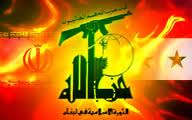
By: Claude Salhani
There is a popular sidewalk café on the rejuvenated Hamra Street in what was previously referred to as “Muslim West Beirut,” claiming to be “100 per cent Lebanese.” It is heartwarming to see people taking such pride in their country. Lebanon is a magnificent small piece of real estate — the size of Rhode Island—that laps the eastern shores of the Mediterranean Sea.
And it’s equally a great shame that few Lebanese politicians can claim the same, to be 100 per cent Lebanese, or even claim to be Lebanese.
It is hardly uncommon for political leaders of this country to place the interests of other neighbouring countries, both far and near, ahead of the their own national interests. One would think that by now the Lebanese would’ve caught on. They keep repeating the same mistakes over and over and over and over. You would think that by now they would’ve learned better just by looking at history, and were talking recent history, very recent history.
Indeed, the political situation in Lebanon reminds one of those ethnic jokes that are told over the world with the nationality of one of the characters changing, depending on where the joke is told. This one was told to me as a Belgian joke, but again you can substitute the nationality according to your discrimination preferences.
A Frenchman and a Belgian are watching a John Wayne movie. In the final scene John Wayne is fighting an Indian. As the two are struggling on the edge of a precipice the Indian appears to have the upper hand. John Wayne is lying on his back with the Indian raising his tomahawk poised to strike at John Wayne’s head.
The Frenchman turns the Belgian and says, “I bet you €10 John Wayne wins.”
“You’re on replies,” the Belgian.
As the Tomahawk descends with full force and just as it is about to strike John Wayne’s head, the American hero swerves to the side and the Indian falls down the precipice. As the lights come on in the theater the Belgian takes out a €10 note and hands it to the Frenchman. The Frenchman starts to laugh and tells the Belgian, “No, no keep your money. I actually saw the film last night for the first time and I knew it was going to happen.” To which the Belgian replies, “No go ahead and take the money, I also saw the film last night. But I didn’t think the Indian would be stupid enough to fall for the same trick two nights in a row.
There are quite a number of similarities between this anecdote and the Lebanese political situation. Indeed, since April 1975, the “official” start of the Civil War that ended officially in 1991 after the intervention of Saudi Arabia, the Saudi’s have kept a discreet eye on the situation, periodically placing pressure on Syria, and/or Iran to stay away from Lebanon, as much as that is possible in view of the way both countries are involved in internal Lebanese politics.
As a reminder while Syria has pulled out its troops from the country it maintains nevertheless enough power to intervene politically in Lebanese affairs without ever having to step over the border. Iran, meanwhile, through its support for the Lebanese Shia militia, Hezbollah, in its own way is able to intervene in the affairs of Beirut.
Since the outbreak of the Civil War the Lebanese, both politicians and the party leaders have supported Syria, Iraq, Iran, Saudi Arabia, Israel, the Palestinians, the United States, France, Egypt, the Soviet Union, communism, socialism, pan-Arabism, Baathism and very likely a slew of others isms, with very few Lebanese politicians coming out in support of Lebanon.
It would be nice to see a sign similar to the one on the Hamra café hanging outside parliament house, claiming it to be 100 per cent Lebanese. Khaleej Times
Claude Salhani is a political commentator based in Washington, DC. He sent this article from Beirut

Leave a Reply
You must be logged in to post a comment.